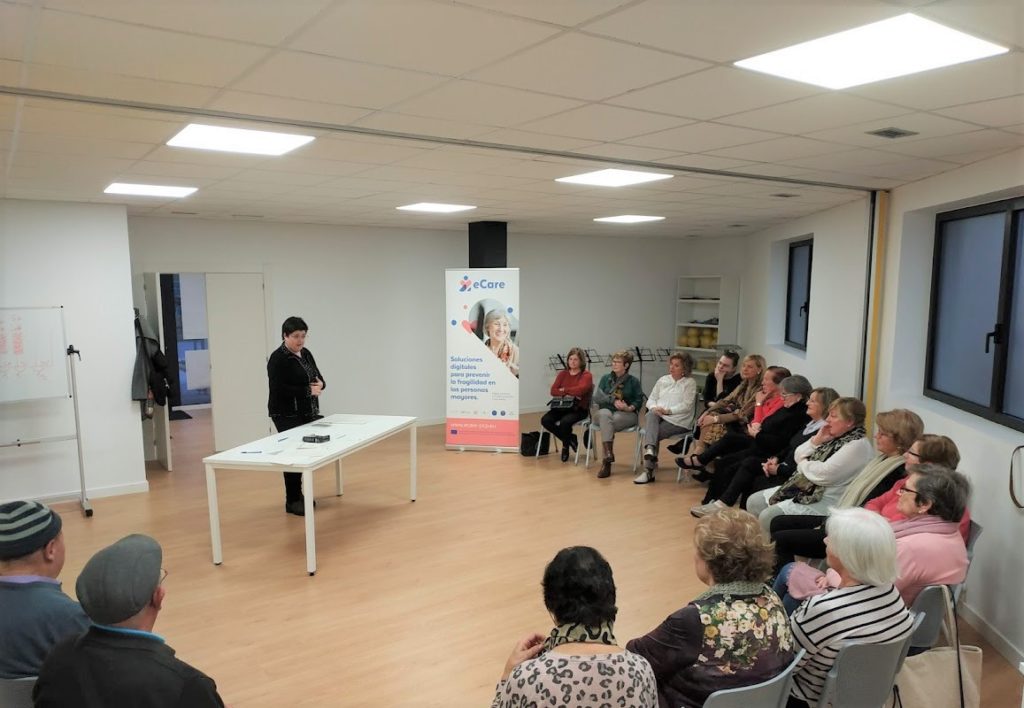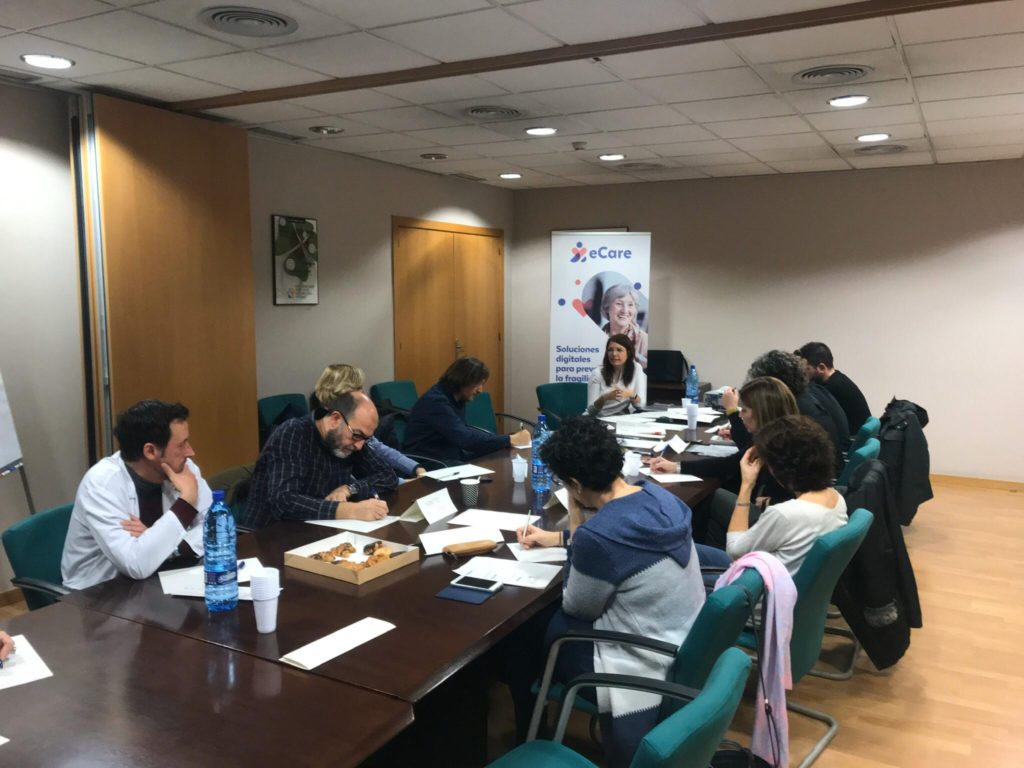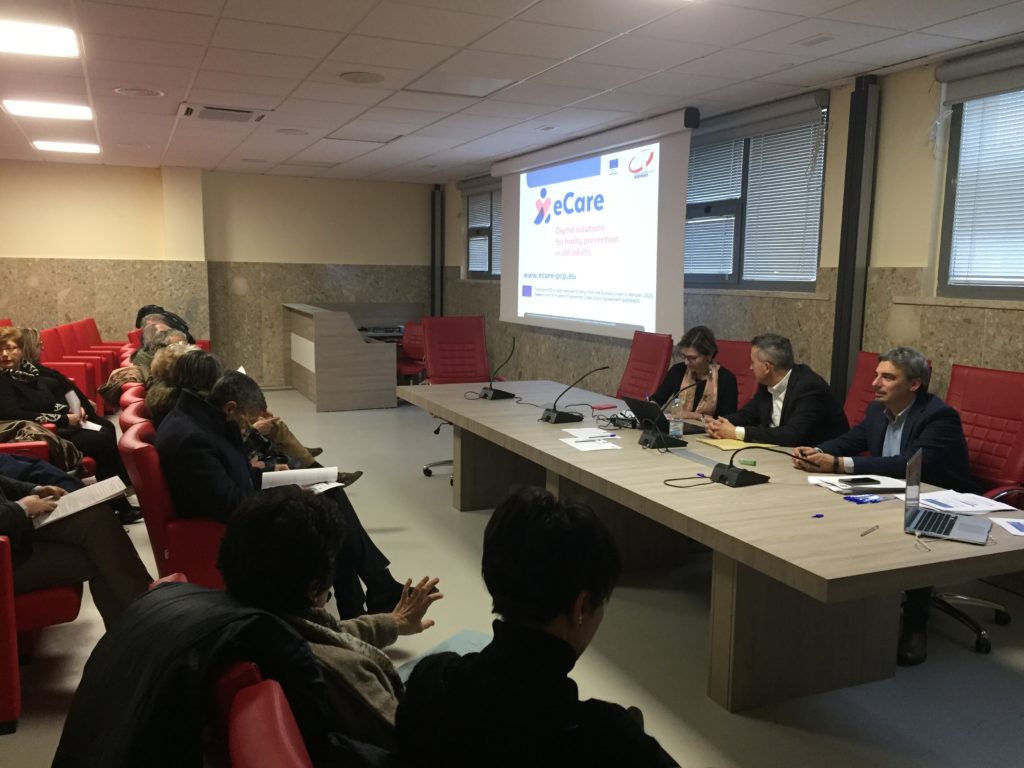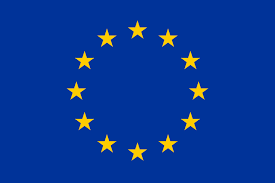eCare: in search of the real unmet needs for frailty management in old adults
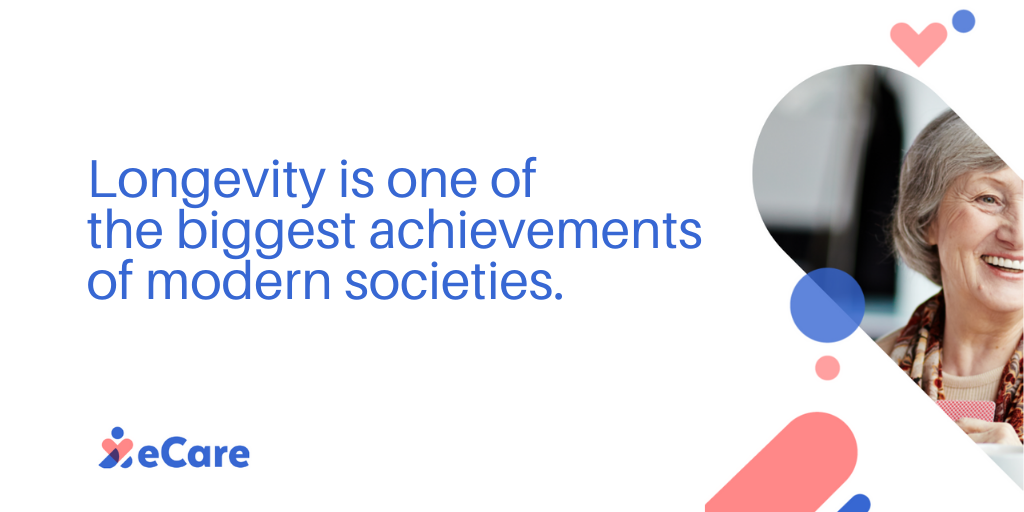
Is it all about life expectancy? Longevity is one of the biggest achievements of modern societies, but the life quality of the old adults in their latest years may be poorer due to frailty and long-term conditions. As a society we need to support them, and that is the starting point of the eCare project: “Good habits for a good life”.
eCare is a European project that aims to deliver digital solutions for the management of frailty to encourage elderly people to live independently. Our goal is to encourage independent living and wellbeing, and to relieve health and care services budget pressure.
From our point of view, this ageing challenge needs to be faced, as a society, from different areas at the same time. “No man is an isle”, highlighted the famous writer John Done. That is true, and so it is when discussing about integrated care. Many previous projects have been mainly healthcare oriented and/or focused on integration of care, with a special emphasis on healthcare. At eCare we are committed to an added value proposition in two main dimensions:
- Boost the biopsychosocial dimension of old adults.
- Highlight the importance of social care services for an effective holistic
Every day we have more evidence that there is a connection among mind, body, and spirit. In fact, now we know that frailty does not occur in silos; it usually comes along associated with another risk factor: loneliness. The elderlies who experience important levels of loneliness are at increased risk of becoming physically frail. Then, ageing, frailty and loneliness constitute overlapping conditions submitted to multiple health and care interventions. Research experiences suggest that frailty can be considered a malleable and manageable condition, and therefore, there may be opportunities along its pathway to halt, reverse, manage and/or prevent its adverse consequences and worsening.
Taking all this context into account, the eCare Consortium is immersed in a deep process of unmet needs detection. Our goal is to be extraordinarily concrete when defining what the end users and the healthcare professionals are longing for. Those unmet needs will be critical for the definition of the requirements and use cases that the IT suppliers will have to follow to design the ICT solutions. Then… what a better way to know their needs than asking them personally?
The vision of providing tailored fit solutions and tools to the end users led to the consensus in creating and facilitating focus group sessions across the 4 procurers regions – Campania (Italy), Barcelona (Spain), Santander (Spain) and Wroclaw (Poland)-. These sessions involve end users, health and social care professionals, and IT internal departments of the procurers’ organisations.
- The focus group script for the end users sessions integrates the following as main topics: the specific condition and related symptoms; experiences of services and care provided; experiences of managing condition when progressing rapidly ; needs for symptom management and how these can be met ; integration of IT supportive tools in the management of frailty and loneliness.
- The professionals are invited to reflect and discuss the following topics: common symptoms and actual care model; experiences of monitoring elderly when condition is progressing rapidly; views about the supportive care needs of elderly and caregivers; early integration of the new care in the management of frailty and loneliness; integration of IT supportive tools in the management of frailty and loneliness.
- The identified and proposed topics for the IT staff are be the state of the art of the relation between IT and social/healthcare; state of the art of interventions on frailty and loneliness.
All the four procurers were challenged to organise, at least, 3 focus sessions, one with each specific target group. So far, all the procurers have already organized and scheduled the sessions that will take place until the end of January. In terms of impact, 119 participants are expected to be involved (56 end users, 42 healthcare professionals and 21 IT people).
All the representative of the procurers reported so far that the participants have been considering the sessions so interesting and useful. In fact, new topics have been put forward for discussion in all the different sessions, adding more important information for the definition of the unmet needs.
The journey of the project so far has been providing very powerful insights and evidences that people and professionals appreciate to be involved and e(motionally) CAREd.
Adriano Fernandes
Innovation Director at Santa Casa da Misericordia Da Amadora (Portugal)
